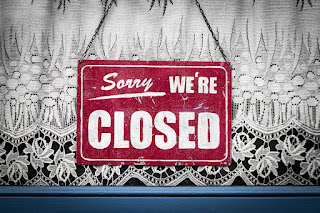As was predicted, the number of coronavirus cases continues to rise around the globe. Yesterday, we learned that over a million people have tested positive, and more than 50,000 individuals have passed away. America has the most cases, 245,658, and Italy continues to have the highest death toll (13,915). So far, 6,069 Americans have succumbed to COVID-19.
The world is far from containing the spread of the virus despite adopting new practices, such as sheltering in place and social distancing. Hopefully, such methods will lead to a flattening of the curve in the near future. Still, the projections for the United States do not look favorable; it’s possible that more Americans will die from the coronavirus than any other nationality.
All of us must continue to heed the advice from public health experts at the Centers for Disease Control and Prevention (CDC). Those include the two methods mentioned above, and also wearing face masks, washing your hands for at least twenty seconds, and self-quarantining if you have come into contact with a person who contracted the virus or has flu-like symptoms. Following CDC guidelines will decrease the chance of disease transmission and contraction.
The unprecedented event we are facing has changed the world in a myriad of ways. The pandemic has had a profound impact on the economy, and the number of jobs lost in such a short period is staggering. If you do not work in a field deemed an essential service or are self-employed, then there is a good chance you are currently out of work.
For those in recovery, being laid-off or temporarily suspended could affect your mental health and potentially derail your program. We hope that everyone who has lost work continues to make recovery their primary focus.
Unemployment and Recovery
It’s almost hard to fathom that 10 million workers have sought unemployment benefits in the last two weeks, USA Today reports. To put that into perspective, nearly 9 million people were laid off during the Great Recession of 2008.
Many people who complete an addiction treatment program do not have employment. Such individuals are instructed to get what is called a “get well job.” A position that is relatively stress-free, and often part-time. Early recovery is a challenging time and taking on too much work can negatively impact one’s ability to focus on their program.
Naturally, many people in early recovery seek work in the service industry, which is the sector hit hardest by the pandemic. So, it stands to reason that a significant number of individuals in recovery were among the 10 million who filed for unemployment recently.
It is a significant blow to be laid off for something out of one’s control. Such an experience can be hard to cope with for anyone, but especially for men and women who are still strengthening their coping skills.
Those who are now unemployed will benefit from doubling their efforts in recovery.
Attend more virtual 12 step meetings, call members of your support network frequently, and pray every day. Such actions will help you cope with your negative feelings and prevent you from making decisions that could lead to a relapse.
Rely on the Fellowship to help carry you through this challenging time of isolation and uncertainty.
We are all struggling with our new realities together, and help is always one phone call away.
California Faith-Based Addiction Treatment
Celebrate Hope is a faith-based addiction treatment center located in Southern California. Our team of addiction professionals utilizes evidence-based therapies and the teachings of Jesus Christ to help men and women break the cycle of addiction. Please contact us today to begin the journey of recovery.

